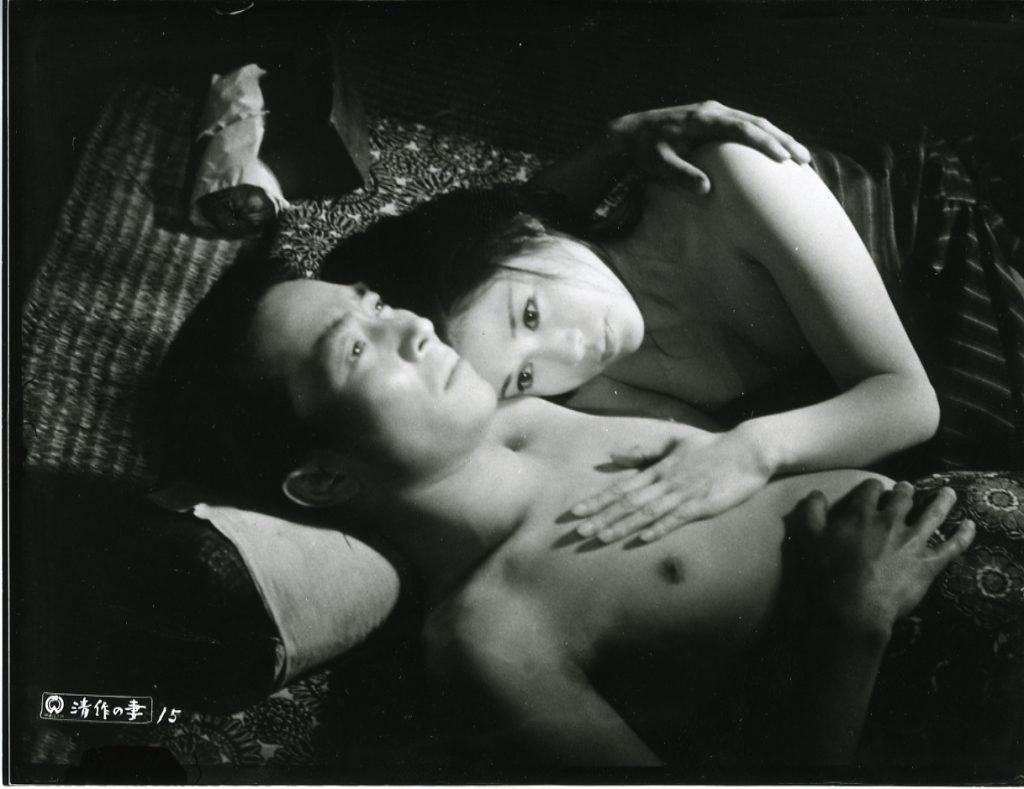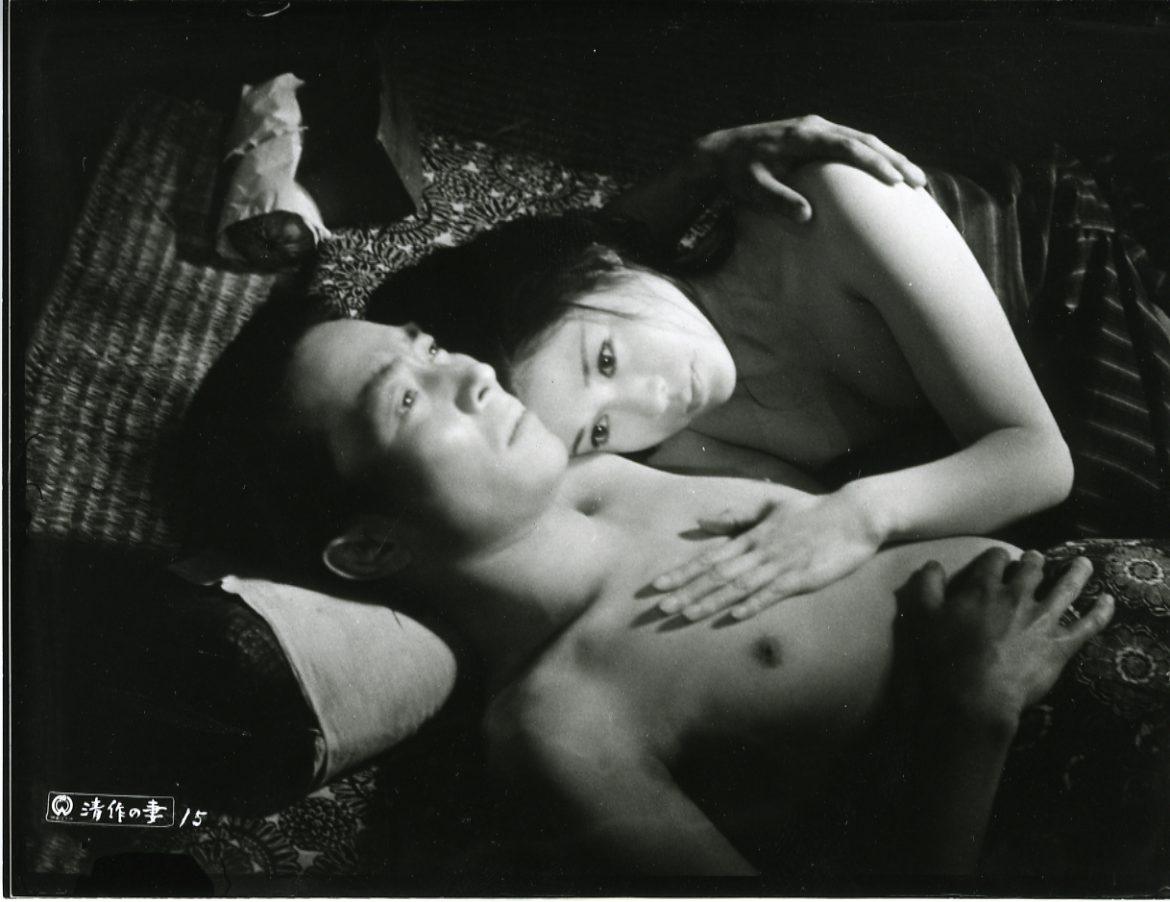• The section of the Las Palmas de Gran Canaria International Film Festival that recovers great works of film heritage has also programmed the international premiere of Glória’s restored copy, Manuela Viega’s debut film

Las Palmas de Gran Canaria, Wednesday, April 16, 2025.- The Spanish premieres of Yasuzô Masumura’s The Spider Tattoo and The Wife of Seisaku’s restored copies, “one of Japanese cinema’s most acclaimed thriller authors,” according to critics in Filmin, as well as the international premiere of Glória, the debut film of Portuguese filmmaker Manuela Viegas, and the Spanish premiere of Never Open that Door by Argentinian director Carlos Hugo Christensen make up the main attractions of this new edition of Déjà Vu, the section of the Las Palmas de Gran Canaria International Film Festival that recovers masterpieces which are part of our universal film heritage.
In 2025, the Festival, which will take place from April 25 to May 4, has also programmed the premieres in any Spanish festival of Nightshift’s restored copy, by Robina Rose, or the celebrated Trotacalles, by Matilde Landeta.
The spirit of this section is perfectly defined in the catalog by its programmer Gloria Benito when she points out that the selected works “are not simply films from the past but stories that, when recovered, are presented to us as a recent discovery, as if they had just been shot.”
Masumura restored
One of the highlights of the program will be the presence of Yasuzô Masumura’s work, with Irezumi | The Spider Tattoo (Japan, 1966, 86 min.) and Seisaku no Tsuma | The Wife of Seisaku. Without a doubt, the screenings of their restored prints are one of the must-see attractions of the Gran-Canarian Film Festival.
Masumura, one of Japanese post-war cinema’s key filmmakers, created an unforgettable passionate story of revenge in The Spider Tattoo. Based on a piece written by Jun’ichirō Tanizaki and featuring cinematography inspired by ukiyo-e prints, it tells the story of Otsuya, a young woman forced to become a geisha and branded with a symbolic tattoo of a giant spider.
On the other hand, in The Wife of Seisaku the Japanese director explores the sense of social duty that has become so closely associated to the character of his people, within a context of conflict between personal desire and the rigidity of social norms. Ayako Wakao’s powerful performance in the film is reason enough to watch it.
Why haven’t we seen these films before?
This is one of the questions addressed by the Festival team. Their answer, in this edition of Déjà Vu, might be find in No abras nunca esa puerta | Never Open that Door (Argentina, 1952, 85 min.), a film by Carlos Hugo Christensen based on stories by William Irish. Its director’s masterful ability to create suspenseful atmospheres marked a milestone in the history of Argentinian noir cinema, making this a must-see piece to revisit.
Another must-see feature is Manuela Viegas’ Glória (Portugal, Spain, 1999, 104 min.), which remained the only Portuguese film selected in the Berlinale’s Official Section up until 2012. With a poster designed by artist Julião Sarmento, this piece of pure independent cinema was the directorial debut of the distinguished Portuguese editor. It tells the story of a girl who faces the loss of innocence in a rural setting dominated by male austerity.
Nightshift (United Kingdom, 1981, 68 min.) is the film Robina Rose shot on 16mm over just four nights in a London hotel. Its dreamlike atmosphere and silences define a story that follows a receptionist who observes the comings and goings of guests.
Trotacalles (Mexico, 1951, 101 min.), by Matilde Landeta, is also included in this edition of Déjà Vu. The ground-breaking filmmaker, who was one of the few women behind the cameras during the Golden Age of Mexican cinema, addresses on the bring screen with a critical approach ahead of her time themes like sisterhood and female exploitation.
Déjà Vu’s contemporary value
The value of a section such as Déjà Vu has gained special relevance nowadays, as Gloria Benito points out. “Film restoration,” she claims, “is entering a new era in which artificial intelligence has become a revolutionary tool capable of rescuing deteriorated images, reconstructing missing frames and improving sound quality with a precision that was impossible until a few years ago.”
However, in many cases the risks inherent to technological advancement alter the original work in a far deeper sense than its mere restoration. The technical expert and programmer of the Festival acknowledges this new dilemma: “How much of a film remains the same when its imperfections, its textures, and its time have been erased? Cinema, like memory, is imperfect, and in that imperfection lies its authenticity.”
On that regard, she emphasizes that “fortunately, the restorations that make up this section have been carried out with admirable respect for the original work, focusing on preserving their artistic integrity and returning these films to us just like they were intended.”
Share this Post

